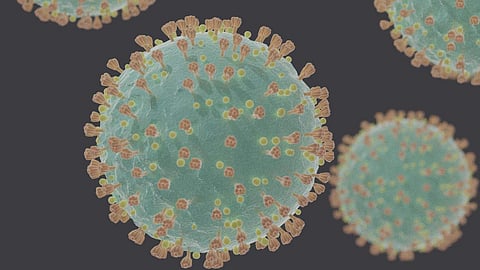

Another detailed study by the American Association for the Advancement of Science asserts that the SARS-CoV-2 virus not only targets to enter the human cells but begin to replicate and spread as well.
The findings also highlight that the possibilities could potentially serve as targets for new therapies for patients with COVID-19, although validation in cells and animal models is needed. Scientists know that SARS-CoV-2 binds the ACE2 receptor on the surface of human cells, after which it enters the cell through a process known as endocytosis.
Research has suggested that the virus may hijack or interfere with other processes such as cellular housekeeping (autophagy) by targeting other receptors called integrins. However, not much is known about exactly how the virus takes advantage of integrins on the biochemical level. Analyzing the Eukaryotic Linear Motif database, Balint Meszaros and colleagues discovered that ACE2 and various integrins contained several short linear motifs (SLiMs ) - small amino acid sequences - that they predicted to play a role in endocytosis and autophagy.
The scientists then compiled a list of currently used experimental treatments and approved drugs that can target the interactions between SARS-CoV-2 and its target SLiMs. Separately, Johanna Kliche and colleagues performed molecular tests to see whether these SLiMs interacted with proteins that contribute to autophagy and endocytosis.
The team found that two SLiMs in ACE2 bound to the endocytosis-related proteins SNX27 and SHANK, and one SLiM in the integrin Beta-3 bound to two proteins involved in autophagy. In addition to providing a resource for repurposing drugs for SARS-CoV-2, Meszaros et al. say their prediction methods could help identify similar under-the-radar SLiMs that assist with the replication of other viruses that cause disease.
